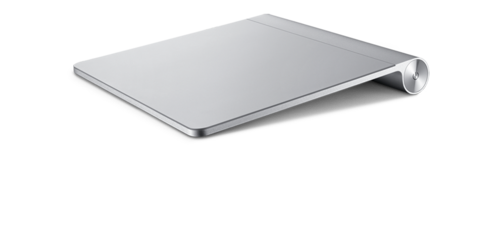This past weekend, I was invited to participate in an opening keynote panel of the Minnesota Bloggers Conference. The thrust of the panel discussion was “Minnesota’s pioneering bloggers and [the] lessons learned, best practices and stories behind their success.†Knowing this and a bit of the questions in discussion beforehand, I was able to think a bit about what some of my answers might be and what message I wanted to put across to those who call themselves “bloggersâ€. Here it is…
You are writers.
I have become increasingly uncomfortable with the title “bloggerâ€. I think this term cuts wrong in several directions.
First, I think it reduces the respect and credibility of those who write and publish online. Especially those who perform this craft well and are deserving of the same recognition and respect society has long bestowed upon writers in other mediums. In fact, take any of your best journalists, authors, etc. and I could show you an equal number of “bloggers†that write just as well if not better.
Secondly, I think it helps to absolve many of becoming better at a craft that they choose to participate in by giving it a label that divorces it from the very thing it is. Writing, editing, publishing – These things that have been happening for thousands of years. The methods and medium may be different but the craft is exactly the same. It does not need a new noun. The fact that technology has progressed to the point where we can do it ourselves does not make the means of the labor different. What technology has done is allow anyone who wishes to write and publish the ability to do so no matter if they have the talent to write or not.
As with any art, part is talent but I would argue that an even larger part is also learning how to write. Once learned, practice (lots and lots of it) is what will help you eventually find, what we writers like to call, your “voiceâ€. That little something in your writing that is uniquely you. Once you find that (and only when you find it), you will be able to cast off any other term that the collective may chose to bestow upon you. You are a writer.
Towards that end, and no matter where you are on your journey, I would like to point you to some of the resources that have helped me over time. This is hardly a complete list. Just a bit of what jumps to mind when I think about such things. I can guarantee that, if you care at all about being a better writer, any of these will help you too.
Books
Bird by Bird: Some Instructions on Writing and Life – Anne Lamott – If you were to read any one book on writing, it should be this one.
On Writing – Steven King – I’m not the biggest King fan (just not my cup of tea), that said, he knocked it out of the park with this one.
The Creative Habit: Learn It and Use It for Life – Twyla Tharp – Practical advice and inspiration for all artists and creatives.
The Elements of Style – Strunk & White – The Old Testament.
On Writing Well – William Zinsser – The New Testament.
Posts
Intellectual Masturbation on Writing Well – Rodney O. Lain – My late friend Rodney not only offers advice on writing but the very existence of this post proves that your words, if properly cared for, will live long after you are gone.
Making the Clackity Noise – Merlin Mann – Ultimately, it is about sitting your butt in the chair and doing this.
NaNoWriMo: A Pep Talk and a Warning | 43 Folders – Also by Merlin. It contains the number one top secret of amazing and successful writers (Spoiler: They write.).
Why I Write – George Orwell – Some excellent thoughts on writing with purpose.
Writing Tips for Non-Writers Who Don’t Want to Work at Writing – John Scalzi – Also good for writers that do want to work at it.
Janet Fitch’s 10 rules for writers – Los Angeles Times – Smart tips from a pro.
Randy Murray’s Writing Assignments – My good friend Randy posts regular writing assignments to his site for fun and practice. The “50 words†one is a particular favorite of mine.
Podcasts
Obsession Times Voice: John Gruber & Merlin Mann’s Blogging Panel at SxSW | 43 Folders – I listen to this, in part or whole, at least once every other month. It’s that good.
Final note: While all of the above are helpful, the only way one can ultimately become a better writer is to write. Reading and listening to things about writing will only help if you apply them while you are writing. So write!
